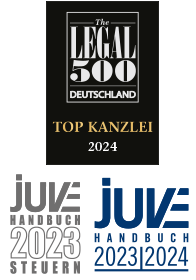International Administrative Assistance
The current developments in administrative assistance are manifold and have become a specialist area of the law. LHP Attorneys advise in legal questions concerning international administrative assistance.
The regulations pertaining to administrative assistance constantly change to the benefit of the Tax Authority. Germany enters into treaties under international law with groups of countries or individual countries. In initial consultations for voluntary self-disclosures and other matters of international tax law, clients often ask for current information on the exchange of information. The regulation pertaining to administrative assistance is too diverse to explain it here in detail.
Information on exchange of information and administrative assistance
We would like to assist in navigating through the maze of regulations, which becomes apparent when dealing with terms like group enquiries and automatic exchange of information. Due to the diversity of regulations, questions related to individual cases should be assessed by an expert on a case-by-case basis.
1. What is administrative assistance?
2. What types of administrative assistance exist?
3. What is the legal basis for administrative assistance?
Administrative assistance within the European Union
A. Different rules apply within the EU:
The 28 member member-countries have substantially agreed to uniform standards for the exchange of information, transitional periods apply for some countries. The following common standards are applicable:
- The Ordinance for Cooperation of Administrative Authorities applies to the area of sales tax .
- The EU Act on Administrative Assistance and the EU Savings Tax Directive apply for direct taxes, meaning taxes raised on income, profit, assets (in particular income tax, corporation tax, inheritance tax, gift tax);
- The EU Enforcement Act governs the enforcement of tax claims within the EU;
- The Convention on Mutual Assistance and Cooperation applies to administrative assistance and cooperation between customs authorities.
These uniform regulations apply in the following 28 countries: Belgium, Bulgaria, Denmark, Germany, Estonia, Finland, France, Greece, Ireland, Italy, Croatia, Lithuania, Latvia, Luxembourg, Malta, Netherlands, Austria, Poland, Portugal, Romania, Sweden, Slovakia, Slovenia, Spain, Czech Republic, Hungary, United Kingdom, Cyprus.
Additionally, there are a number of special features and further bilateral and multilateral agreements.
Switzerland and Liechtenstein follow many of these EU-regulations or modified regulations are in place.
We offer country-specific information on the page “International Exchange of Information”.
B. Administrative assistance under the double tax treaty:
Clause 26 of a double tax treaty usually regulates the mutual exchange of information between Germany and the other country (so-called reporting clauses). These reporting clauses are classified in ancillary and comprehensive reporting clauses:
- Ancillary reporting clauses: These are mainly contained in DTT’s with developing countries. They specify that the parties must mutually provide information required for the administration of the double tax treaty. When it comes to filling the standards set by the tax treaty with life, the required information is reportable as set out in these clauses.
- Comprehensive reporting clauses: These are predominantly contained in the double tax treaties with most industrialised countries. They stipulate that all information required for the assessment of taxes must be exchanged. This is mainly concerned with information on tax evasion and tax fraud.
Note: Despite the ambiguous term, a double tax treaty does not aim at taxing income twice. Quite the opposite is the case, they contain regulation aimed at preventing double taxation as far as possible (e.g. by giving credit for foreign taxes paid). Further information on preventing double taxation is provided on the page International Tax Law.
The Federal Ministry for Finances (BMF) publishes an overview of the current tax treaties and respective negotiations in January of each year (most recently in January 2015 in the BStBl 2015, part I p. 128). The BMF publishes the individual tax treaties on the internet (see www.bundesfinanzministerium.de – Steuern – Internationales Steuerrecht – Staatenbezogene Informationen). We can assist with all questions related to individual double tax treaties.
C. Administrative assistance under the EG-Directive for Administrative Assistance or EG Administrative Assistance Act:
The EG Directive for Administrative Assistance regulates the type and extent of mutual administrative assistance by way of exchange of information between the EU-member countries. This directive was implemented in German national law by the EG Administrative Assistance Act (EG-Amtshilfe-Gesetz, EGAHiG). The EGAHiG applies to administrative assistance for the assessment of direct taxes (mainly income tax and corporation tax) as well as taxes on insurance premiums. Its content corresponds to the comprehensive reporting clause contained in the double tax treaty (see above).
The EG Administrative Assistance Act distinguishes information as follows:
- Information on request § 2 Sec 1 EGAHiG: the Tax Authority requests specific information on individual cases,
- Ad-hoc information § 2 Sec 2 EGAHiG: The Tax Authority reports information which might be relevant for taxation in the other country, without being requested,
- Automatic reporting of information § 2 Sec 3 AGAHiG: The information is reported automatically, usually in regular intervals.
The Central Authority for Taxation (Bundeszentralamt für Steuern, BZSt) in Bonn is responsible for requests for administrative assistance. The BZSt forwards the tax authority’s request to the responsible foreign authority. The Tax Authority receives a response via the BZSt. The Swedish Initiative is an exemption, which allows for direct contact between tax investigators in the respective countries (see point V below).
D. Administrative assistance under the EU Savings Tax Directive or Interest Reporting Directive.
Under the EU Savings Tax Directive, the EU-member countries are obligated to issue tracer notes in respect of capital income in a EU country. Otherwise, a withholding tax for capital income may be adopted. Belgium, Luxembourg and Austria have opted for the latter and adopted an anonymous withholding tax on capital income to apply during a transitional period. Belgium already joined the other EU countries on 1.1.2010 and Luxembourg did so on 1.1.2015. Both countries therefore also issue tracer notes. Austria will begin issuing tracer notes by 2017 (other countries, e.g. Switzerland will follow by 2017/2018).
Switzerland and Liechtenstein currently apply the EU Savings Tax Directive under separate treaties and have given a political undertaking to implement the system of tracer notes by 2017/2018 (reporting for the year 2017 by no later than September 2018).
We offer country-specific information under “International Exchange of Information” on this website.
A current schedule of countries participating in administrative assistance is published by the Federal Ministry for Finances. The current schedule is dated 2015 (www.bundesfinanzministerium.de). This lists the countries currently issuing tracer notes and the countries deducting a withholding tax.
Note: A current tracer note may also be of retrospective significance, if the Tax Authority assumes a long-standing fraudulent tax-arrangement based on the overall circumstances of the case (e.g. capital invested over many years).
Contrary to some reports in the media, voluntary self-disclosure as a means to return to tax legality is still available today, if managed professionally. Each individual case should also examined for any possible estoppels. We recommend discussing the individual circumstances in an initial consultation.
Cologne
An der Pauluskirche 3-5,
50677 Cologne,
Telephone: +49 221 39 09 770
Zurich
Tödistrasse 53,
CH-8027 Zurich,
Telephone: +41 44 212 3535
















